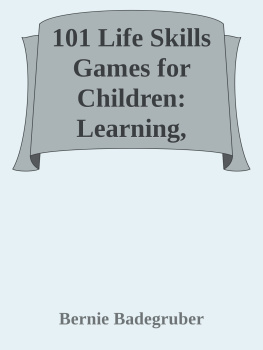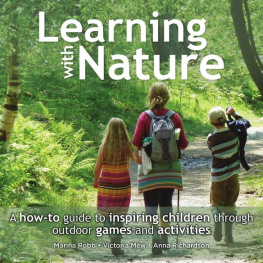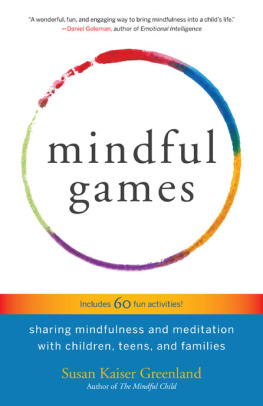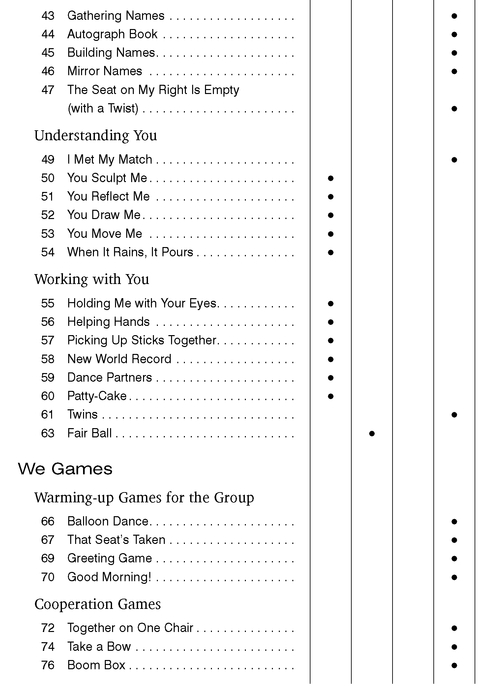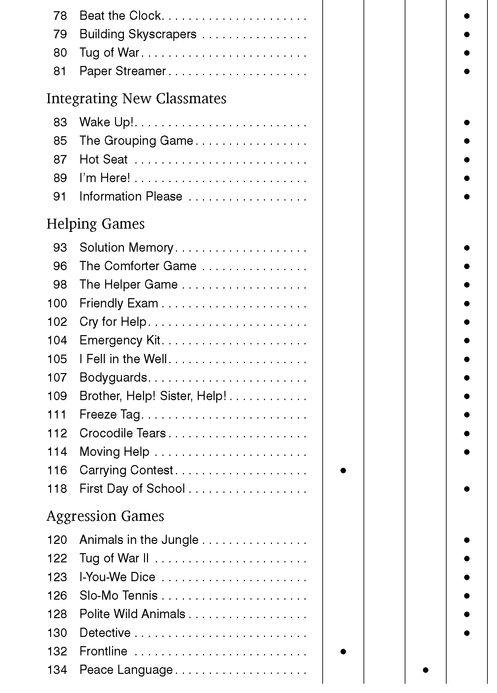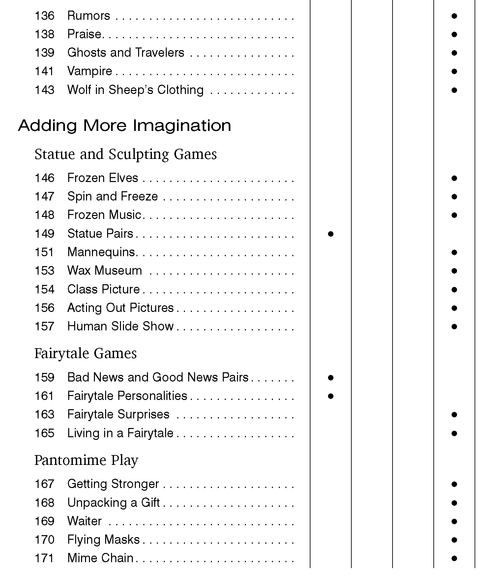Table of Contents
Other Smart Fun Books
101 Music Games for Children by Jerry Storms
101 More Music Games for Children by Jerry Storms
101 Dance Games for Children by Paul Rooyackers
101 More Dance Games for Children by Paul Rooyackers
101 Drama Games for Children by Paul Rooyackers
101 More Drama Games for Children by Paul Rooyackers
101 Movement Games for Children by Huberta Wiertsema
101 Language Games for Children by Paul Rooyackers
101 Improv Games for Children by Bob Bedore
101 Life Skills Games for Children by Bernie Badegruber
101 More Life Skills Games for Children by Bernie Badegruber
101 Cool Pool Games for Children by Kim Rodomista
101 Family Vacation Games by Shando Varda
101 Relaxation Games for Children by Allison Bartl
101 Quick-Thinking Games + Riddles for Children by Allison Bartl
101 Pep-Up Games for Children by Allison Bartl
404 Deskside Activities for Energetic Kids by Barbara Davis, MA, MFA
Yoga Games for Children by Danielle Bersma and Marjoke Visscher
The Yoga Adventure for Children by Helen Purperhart
The Yoga Zoo Adventure by Helen Purperhart
Yoga Exercises for Teens by Helen Purperhart
Ordering
Trade bookstores in the U.S. and Canada, please contact:
Publishers Group West
1700 Fourth Street, Berkeley CA 94710
Phone: (800) 788-3123 Fax: (800) 351-5073
Hunter House books are available at bulk discounts for course adoptions;
to qualifying community, health-care, and government organizations;
and for special promotions and fund-raising. For details please contact:
Special Sales Department
Hunter House Inc., PO Box 2914, Alameda CA 94501-0914
Phone: (510) 865-5282 Fax: (510) 865-4295
E-mail: ordering@hunterhouse.com
Individuals can order our books from most bookstores,
by calling toll-free (800) 266-5592, or from our
website at www.hunterhouse.com
Index of Games
Preface
What are life skills? Aside from the practical skills required for getting on in life, children need to develop social and emotional skills in order to become well-adjusted adults. These skills are the focus of this book.
In particular, the games in this book and in 101 More Life Skills Games for Children (for children and teens aged 915) are designed to foster competence and awareness in the following areas: self-awareness, self-regulation of emotions, active listening, verbal and nonverbal communication, collaboration with others in pairs and larger groups, and observing and understanding other peoples feelings. These are essential skills, the building blocks of a successful life. Participating in the games in this book in class or at a camp will help a child to develop in a safe and supportive environment.
We considered calling these areas of social and emotional development life values rather than life skills but didnt want to mislead readers into assuming that we are recommending moral principles or prescribing what is right and wrong. Rather, the focus is on developing the foundation skills of self-awareness and getting along with others. Once these foundations are in place, children are equipped to learn the skills required to become independent. These are addressed in other books and are likely to be of more value when your children are a little older.
School counselors and teachers have noted an increase in the number of children who have difficulties assimilating into the classroom environment. To help these children, counselors have to rely on strong participation from parents, teachers, educators, and other adults. This book has been created to help them.
Children who have problems in the classroom have a tendency to cause problems for others, too. These children need models for developing social and problem-solving skills. In a structured group they can experience and try out social behavior. They can learn through daily practice and contact with other children. Make-believe situations can helpin make-believe children can find security. With the games in this book, while having fun, children can deal with a current conflict in the classroom or with a make-believe problem that will help prepare them for real-life situations in the future.
Life skills games can also work at the group level, so that group members can face future problems with confidence and develop problem-solving competence as a group. A child who feels safe in a strong group will also be better at facing problems outside the group.
The games in this book are arranged in four sections, according to the ways in which they achieve their goals.
In I Games, the communication is mostly one-way. The main skill targeted here is for children to explore themselves and express what they observe. Of course, the children listen to what others have to say, but there is no group reflection about what has been said: no questions asked, no comments made.
You Games focus on how children perceive a partner. They try to learn more about the partner through observation, questioning, responding, commenting, and mirroring. Doing this, they learn a bit more about themselves but also get closer to another person, and then to more and more members of the group.
We Games emphasize the goals of learning to orient oneself in a group, knowing ones position within the group, and recognizing and using the strengths and weaknesses of group members and of the group itself. Children might also learn that a group changes, i.e., that the characteristics of a group fluctuate. Positions, relationships, moods, and potential in a group are partially stable, partially dependent on the situation.
In We Games, members of a group learn to recognize differences between their own and other groups, and how to assess and accept other groups.
As the children get better at the earlier games in the book, the group leader can introduce them to the games in the fourth section, Adding More Imagination. These games have fewer rules and allow for more creativity.
In each of the four sections, many of the games have Reflections and Role Play suggestions. The Reflections are examples of questions the leader can ask the children in order to maximize the possibilities for learning and discussion opened up by the games. The Role Play suggestions add another dimension to the games by enabling the players to encounter each other in character.

